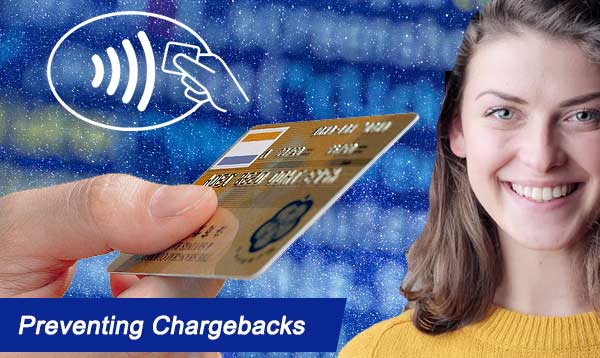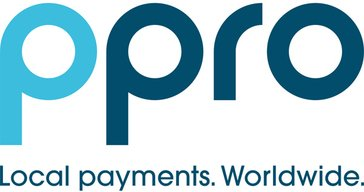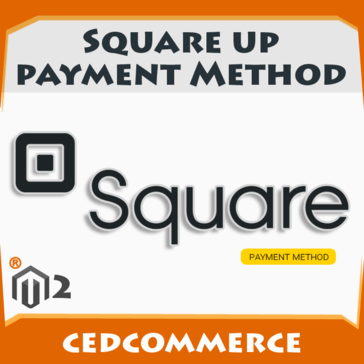Preventing Chargebacks
Preventing Chargebacks Table of Contents
- Preventing Chargebacks What Are Chargebacks
- What Are Chargebacks
- High-Risk Merchant Accounts
- Ways Your Business Can Avoid Chargebacks
- Be Proactive To Avoid Chargebacks
- Preventing Chargebacks And Inquiries
- Overview of Preventing Chargebacks
- Best Payment gateway Solution by Rating
- Best Payment gateway Solution by Price
- Best Payment gateway Solution by Rated Features
- Check Your Payment gateway Solution Offers Round The Clock Support
- Make Sure Your Payment gateway Solution Offers The Features You Need
- Best Payment gateway Software Solution Verdict
- Payment gateway Software Frequently Asked Questions
- What is the best Payment gateway Solution?
- What is the cheapest Payment gateway Solution?
- Is there a free Payment gateway Solution?
- View all of the top Payment gateway Software Solutions
- Payment gateway Alternatives
- Payment gateway VS Side by Side Comparisons

Preventing Chargebacks
What Are Chargebacks
What are chargebacks? A chargeback is simply a return of funds to a financial customer of a merchant, specifically a credit card processor. Chargebacks occur when a customer notifies the credit card processor that they are denying authorization for a particular transaction because the customer believes that the customer's account is not valid for the amount that was initially paid for the transaction. A credit card processor will try to find a solution to the dispute by either returning the money to the customer in question or issuing the customer a chargeback.
High-Risk Merchant Accounts
If you're a merchant and you get chargebacks regularly, it may be a good idea for you to consider high-risk merchant accounts. High-risk merchant accounts are those merchant accounts that are considered to be the highest risk by the major credit card processors including MasterCard, Visa, and Discovery. These types of merchant accounts usually have very strict guidelines and policies on what transactions they will accept and they also will charge very high rates of interest. Because of these factors, these types of merchant accounts are only for merchants that have very high risk merchant accounts. There are many other types of merchants that are not considered to be as high risk, but they can still encounter problems with credit card chargebacks. You should consider the services of a merchant account company that specializes in helping merchants with these types of issues.
Chargebacks are never good and they should never happen. The best thing for you to do is to communicate with your merchant account processor so that they can better understand what a chargeback means. As a merchant, you should never get hit with a chargeback. This will never make good business relations with your customers. Your reputation as a merchant needs to be above blame. It will help if you always follow up with your merchant account issuer to make sure that the transaction is progressing as normal.
Ways Your Business Can Avoid Chargebacks
If you run a business and you want to know how to avoid chargebacks, then you need to read this article. There are three main reasons that chargebacks happen, and ways that you can go about fixing them if they do happen. First, you should only accept credit card payments from your customers if they are at their homes, at work, or at a retailer. Second, you should only keep track of your customer's personal information in your database if you are absolutely sure they want to give it to you.
If you follow these ways your business can avoid chargebacks, then you will find that you will have a much smoother business than you currently have. It is impossible to avoid chargebacks if you do not have information on your customers, but with the right software you can build up an incredible amount of information about your customers and you can use this to solve problems before they happen. Also, you will be able to handle any customer request better than you ever could before because you will be able to identify common problems and concerns early on in the process so that you can prevent them from happening in the future.
If you run a business and you want to learn how to avoid chargebacks, then you need to make sure that you implement all of the tips that are in this article. If you don't, then you will never learn how to prevent them and you might have to deal with them for your entire business life. You are at the top of your profession, and you owe it to your customers to make sure that you never face this problem in your career.
Be Proactive To Avoid Chargebacks
As someone who has had a lot of experience with chargebacks, I know that it can be a very frustrating situation to find yourself in. Most people look at a chargeback as being a huge problem and automatically pull their credit report to find out what the problem is. However, there are actually a few different reasons why you should be proactive to avoid them in the future.
First, credit bureaus do not want you to have too many unpaid items in your report. This is why they regularly send you notices regarding your outstanding balances. They realize that if you have too many of these items it will negatively affect your credit score. Because of this, they will often times work out a solution with you to get these debts paid off or in some cases they will simply remove the chargeback. If you are serious about cleaning up your credit, you should probably contact each credit bureau separately and try to work out a plan to improve your report.
Second, you should know that most chargebacks occur because the credit card company does not actually have permission to collect the debt from the original creditor. This is often due to a non-disclosure contract. If you can prove to them that you are not sure about the debt you owe, you may be able to negotiate terms where the account is deleted from your file. If you need any help locating a disputing company you should try your local library, or search for 'chargeback advice' on the internet. There are a few books that I have personally found to be very helpful in disputing chargebacks as well.
Preventing Chargebacks And Inquiries
Many ecommerce merchants find that they incur a high amount of chargebacks and inquiries, which are the result of unknowingly allowing a customer to use their credit or debit card for shopping on an online store that they are not authorized to use. The best way to prevent chargebacks and inquiries from occurring is by being very cautious when entering personal information. When you enter your credit card information on the web page, the information is sent to the Internet server. There it is reviewed by high risk merchant account service providers who identify any fraudulent activity. If fraudulent activity is identified, your credit card is either immediately blocked or you will receive a chargeback notice. In addition, if you are not authorized to access the Internet or if your IP address is used to place the order on a site that you are not authorized to access, you will receive an inquiry notice.
A great one to use is Shopify. By using Shopify as a merchant account provider, you will be able to protect yourself and your customers from fraud and have the peace of mind that comes with knowing you are protected. Using Shopify, you will be able to manage all aspects of your ecommerce website including the design, the content, and the security of your site. You can set up the Shopify store anywhere you want to include on the road, in your backyard, or anywhere else you feel like because you have the tools necessary to manage it. When it comes to shopping, you want to make sure you're only doing business with a reputable company that provides excellent customer service.
In addition, you can get scammed by other chargeback and inquiry victims because your information can easily be stolen on the web if you are careless. If you want to be extra careful, you can request that your credit card issuer to provide you with a unique identification number, also known as a merchant ID, or a UPC. This UPC will allow you to track all of your transactions and know exactly who is making the charges. If you are concerned about being scammed, you can get scammed by Shopify and other online stores by enrolling in one of their merchant accounts so that you can get more protection for your business.
Scroll down to read our indepth Payment Platforms guide. What you should know, Payment Platforms features, price plans and support. Pros and Cons of Payment Platforms as a payment gateway, everything is explained below.
Overview of Preventing Chargebacks
Spreedly is a software company that specialises in payment-gateway software for small to enterprise level businesses.
Spreedly is listed as the best payment-gateway software related to Payment Platforms. Spreedly was founded in 2008 in Durham, NC and currently has over 79 employees registered on Linkedin.
Best PAYMENT GATEWAY Solution By Rating
Get our stories delivered
From us to your inbox weekly.
 Spreedly
Spreedly
 Simpl
Simpl
 allpago
allpago
 EBizCharge
EBizCharge
 Bolt
Bolt
 PayLane
PayLane
 Paytm Business
Paytm Business
 Apple Pay
Apple Pay
 Paystack
Paystack
 SquareUp Payment Method
SquareUp Payment Method
 Ingenico ePayments
Ingenico ePayments
 PayMart
PayMart
 Paymill
Paymill
 Yapstone
Yapstone
 TRUSTLY
TRUSTLY
 Wirize
Wirize
 Zotapay
Zotapay
 Zooz
Zooz
 Zipmark
Zipmark
 XTRM
XTRM
